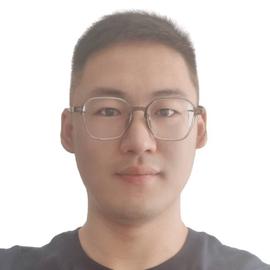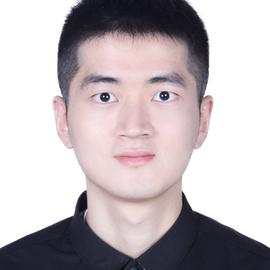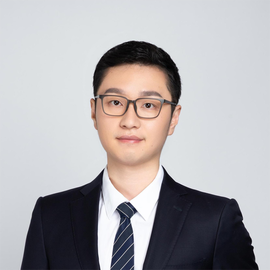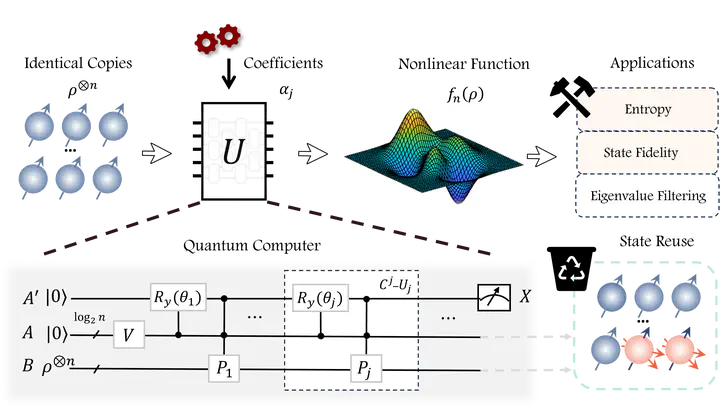Abstract
Efficient estimation of nonlinear functions of quantum states is crucial for various key tasks in quantum computing, such as entanglement spectroscopy, fidelity estimation, and feature analysis of quantum data. Conventional methods using state tomography and estimating numerous terms of the series expansion are computationally expensive, while alternative approaches based on a purified query oracle impose practical constraints. In this paper, we introduce the quantum state function (QSF) framework by extending the SWAP test via linear combination of unitaries and parameterized quantum circuits. Our framework enables the implementation of arbitrary degree- polynomial functions of quantum states with precision using copies. We further apply QSF for developing quantum algorithms of fundamental tasks, achieving a sample complexity of for both von Neumann entropy estimation and quantum state fidelity calculations, where represents the minimal nonzero eigenvalue. Our work establishes a concise and unified paradigm for estimating and realizing nonlinear functions of quantum states, paving the way for the practical processing and analysis of quantum data.
Publication
arXiv:2412.01696

PhD Student (2024)
I obtained my BS degree in Mathematics from Nanjing University of Aeronautics and Astronautics and my MS degree in Mathematics from Beihang University. My research interests include quantum information theory and quantum machine learning.

Research Assistant
I obtained my B.E. in Information Engineering from South China University of Technology. My research interests include quantum information theory and quantum computation.

Associate Professor
Prof. Xin Wang founded the QuAIR lab at HKUST(Guangzhou) in June 2023. His research primarily focuses on better understanding the limits of information processing with quantum systems and the power of quantum artificial intelligence. Prior to establishing the QuAIR lab, Prof. Wang was a Staff Researcher at the Institute for Quantum Computing at Baidu Research, where he concentrated on quantum computing research and the development of the Baidu Quantum Platform. Notably, he spearheaded the development of Paddle Quantum, a Python library designed for quantum machine learning. From 2018 to 2019, Prof. Wang held the position of Hartree Postdoctoral Fellow at the Joint Center for Quantum Information and Computer Science (QuICS) at the University of Maryland, College Park. He earned his doctorate in quantum information from the University of Technology Sydney in 2018, under the guidance of Prof. Runyao Duan and Prof. Andreas Winter. In 2014, Prof. Wang obtained his B.S. in mathematics (with Wu Yuzhang Honor) from Sichuan University.
 The quantum state function (QSF) framework
The quantum state function (QSF) framework